He had a stellar amateur career in a Golden Era for Netherlands Cycling; rode for four of the sport’s most famous teams – IJsboerke, Capri Sonne, Raleigh and Panasonic; was a highly successful team manager and is still deeply involved with the sport he loves.
VeloVeritas is delighted to be able to bring you the thoughts of Mr. Theo de Rooij.
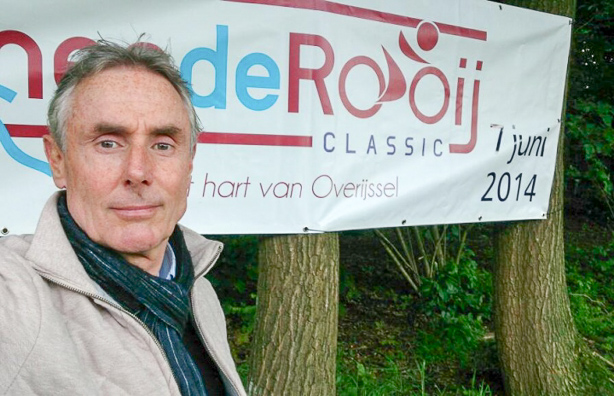
Many thanks for speaking to us, Theo – was it winning the Tour of North Holland in 1979 which gained you your contract with IJsboerke?
“In fact 1978 was my best amateur season ever and I had several offers from top pro teams. In 1979 however, I had to finish my business school and get my degree so it was not until 1980 I could pass to being pro.
“In 1979 I won 12 races; I won the Tour of North Holland (three day stage race), the first stage and three days yellow in the Tour of East Germany (DDR) and was 2nd in the National road championship.
“The interest of Pro Teams was less massive than the year before but I got my degree!
“Then I signed for IJsboerke but in fact the Dutch bicycle brand KOGA Miyata, and co-sponsor of the IJsboerke Team, was my employer.
“In August that year Peter Winnen also signed for KOGA/IJsboerke.”
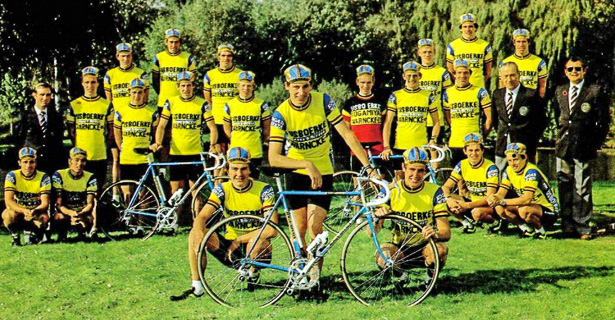
You rode for four of the most famous cycling teams ever, this must be a source of pride?
“Yes, I am proud of my career; I was always part of major big battles in the world’s foremost bicycle races.
“I am also proud of the fact that in 27 years of Pro cycling (11 as a rider, 16 in team management) I only had three ‘chiefs’: ‘Walter Godefroot from 1980-1982, Peter Post 1983-1994 and Jan Raas (later Rabobank) 1995-2007.
“Loyalty, confidence, long term commitment and working with the right people have always been very important for me.”
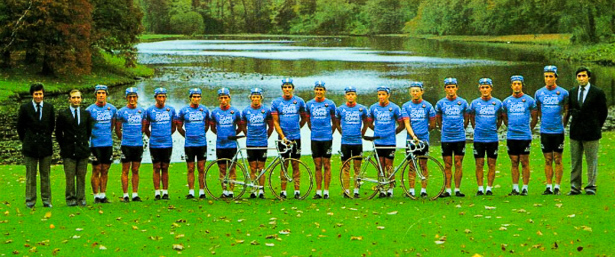
You were winning as a neo pro – Koolskamp and second in the Baracchi; you took to the pro life easily.
“I sure did.
“My first win was a stage in the Tour de Romandie in May 1980.
“I was 3rd in the National Road Championship and I finished 4th in the Tour of Lombardy (only 17 finishers because of the terrible weather).”
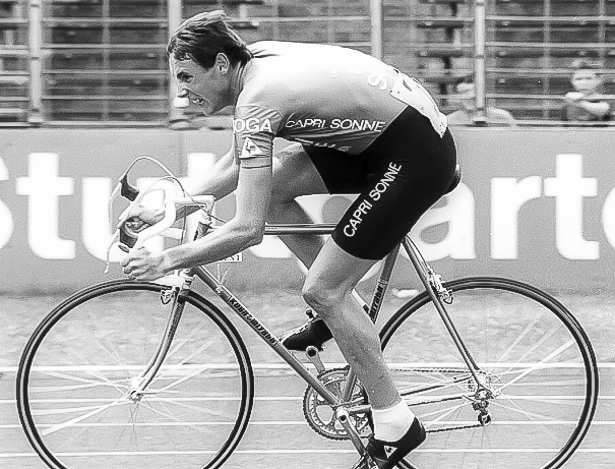
The Trofeo Laigueglia in ’82; a hard race to win – all the Italians want it.
“Taking into consideration that I broke my left collarbone six weeks before and the extremely poor weather conditions, it sure was a stunt.
“One of my best memories…”
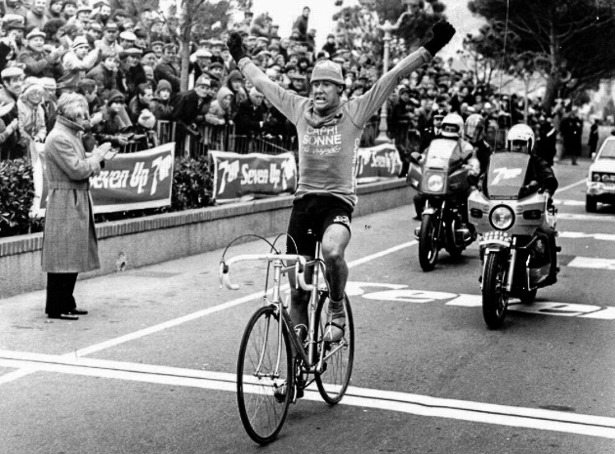
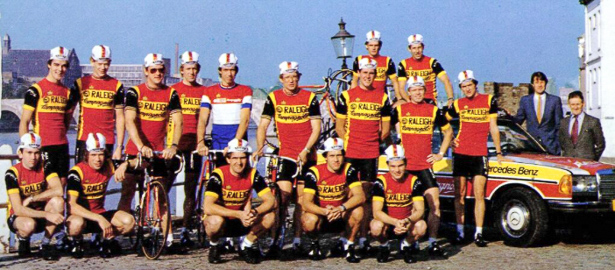
Were you nervous about signing for Peter Post in ’83?
“No, in fact Peter was my ‘second choice’. If it were up to me, I would have signed for the legendary Italian team Bianchi of Giancarlo Ferretti.
“I am always in for a challenge and riding in an ambitious Italian top team, as the only Dutch rider seemed very appealing. I loved the Italian (cycling) culture.
“I also negotiated with Miguel Echavarri of the Spanish Reynolds Team. However, my first wife did not want to move to Italy (or Spain) and leave her native area, nor did she want to miss me for periods of weeks when I would be living, racing and training in Italy.
“So in the end I signed with Peter Post-TI Raleigh – which was not a bad choice either…”
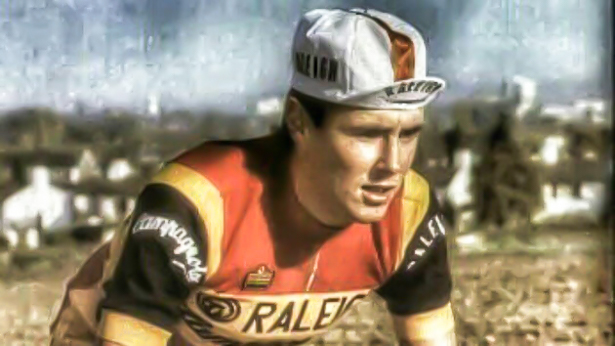
Eight seasons with Peter Post, tell us about those times and Mr. Post, please.
“Peter was a real winner.
“Never satisfied, always ambitious and he made us take every race of the season seriously, we always went for the win, from February until October. And when we won, tomorrow was always more important; never a moment of relaxation.
“He was well organised, or had people in the team who did the work for him.
“He was a clever man with class and charisma. But sometimes he was also terribly annoying when he had one of his provocative moods. At first I was deeply depressed but from the moment I disputed with him our relation became better. It was just his way to keep everybody motivated, by means of his sharp, direct humour from Amsterdam.
“Always pressure.
“And as a consequence: results.”
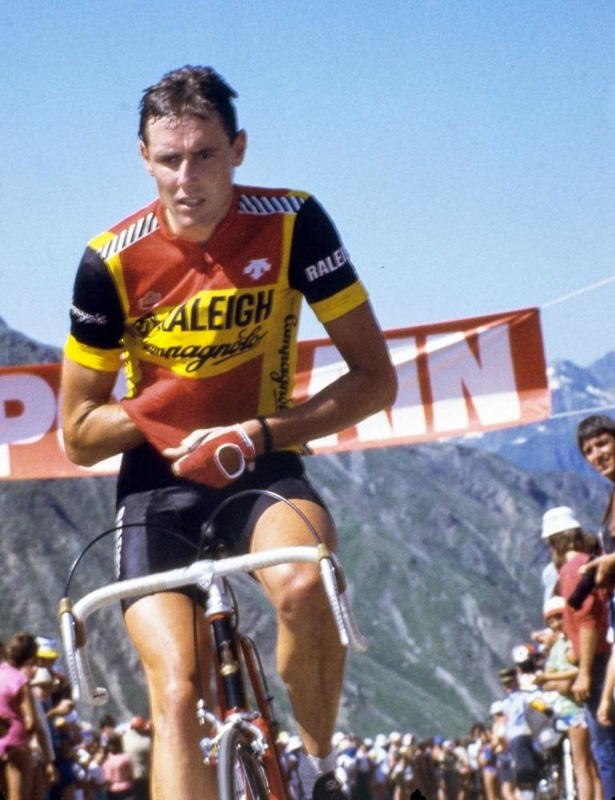
“Post was not really a man for the classifications of the major stage races. We were a tactically strong team for classics, shorter stage races and stage wins – opportunists, fighters, warriors… GC riders were in general too serene and unagitated. They saved energy, you know?
“And he never built a team uniquely around one GC rider. We always had sprinters, time trial specialists and many ambitions: stage wins, yellow, green, GC. For the four or five remaining domestiques in the Tour de France, like me, this was really hard work. There was never ‘a day off’.
“Peter was a very powerful man; I never met anyone stronger and more charismatic. But he also had a very vulnerable side, which I discovered later in his life when we became friends instead of ‘Chief and Indian’.
“He was a great person, unforgettable.
“And we shouldn’t overlook that he was also the sports director of the last Dutch Tour de France winner, Joop Zoetemelk in 1980.”
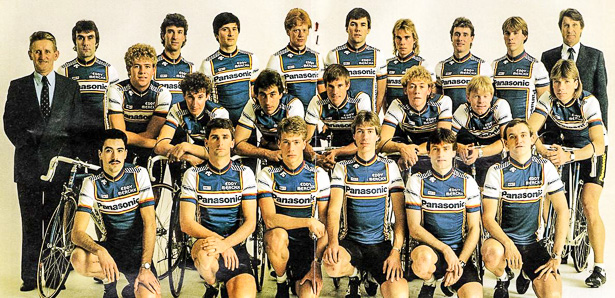
Would you say Panasonic was the first ‘super team’?
“For sure Panasonic was the biggest and most important sponsor in the history of cycling (at the level of Coca Cola and one of the top five title sponsors at the Olympic Games).
“A team with riders from many nations like the opportunistic Australians Anderson and Peiper, the flamboyant Belgian sprinters Vanderaerden and Planckaert, the phlegmatic Scot Millar and later – after the tumbling of the Berlin wall – top riders from the east like Ekimov and Ludwig.
“And not to forget Fondriest.
“It was a miraculous mixture of characters, directed by Peter Post and managed by Walter Planckaert and me.”
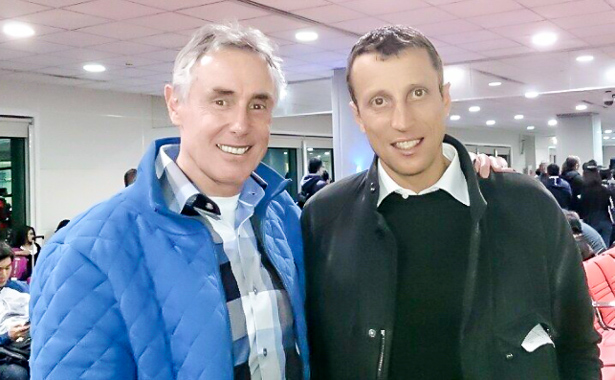
What were those Raleigh and Panasonic TTT’s like to ride?
“We were always convinced that we were the best. We had a lot of experience on board and our preparation was always well balanced.
“And the confidence and respect between the riders was excellent.”
You rode eight Tours de France, which was toughest and why?
“I started in eight Tours and finished seven.
“The toughest was the Tour of 1989.
“During the Tour all our sprinters and GC guys abandoned and we were left with five domestiques.
“In the stage to Superbagnères I finished 34 sec. inside the time limit, the last rider to stay in the race.
“I was so happy…”
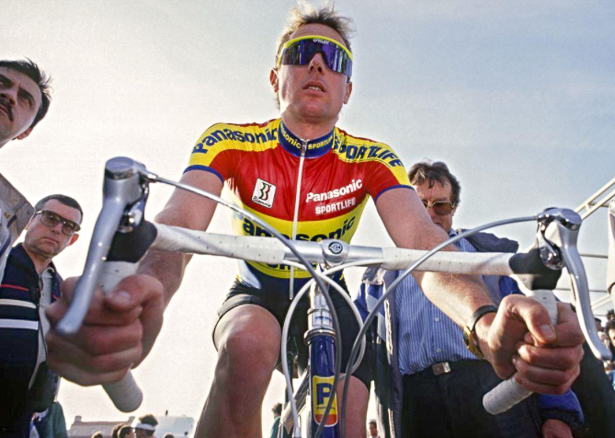
You went straight from being a rider to management at Panasonic – what was the change like?
“It was not such a big change as you would imagine. But for sure it was a big surprise for me to get this opportunity.
“I always maintained a somewhat independent role in the team; chose my own way, was never involved in whatever ‘camp’. Another advantage was the fact I speak all major European languages.
“That placed me in the middle of the team.”
Then you were with Jan Raas at Rabobank – Mr. Post’s big rival.
“I have known Jan for a long time, we did a lot of races together and we have always respected each other.
“Even during the period of the clash between the two teams, in which I occasionally expressed my own point of view and acted as such.”
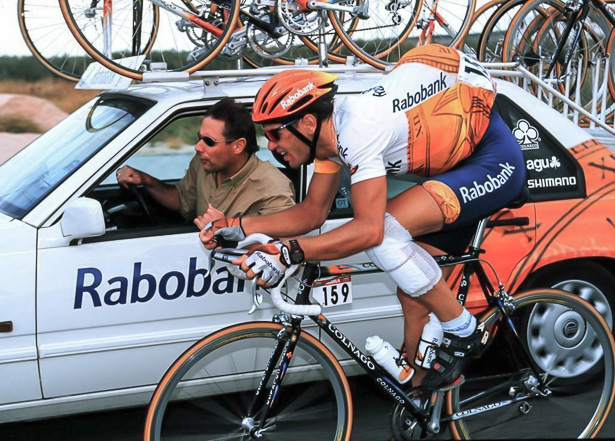
You enjoyed huge success at Rabobank, what was that down to?
“At Rabobank we had a very good, coherent and reliable, internationally oriented (as most Dutch people are) staff.
“Dutch, down to earth sobriety, professionalism and no nonsense, a very good sponsor and the heritage/culture of the generations before us: Jan Janssen, Joop Zoetemelk, Jan Raas, Hennie Kuiper, Gerrie Knetemann, etc.
“And, of course, a fresh generation of new riders like Van Bon, Dekker, Boogerd, surrounded by matching, motivated foreign guys like Rolf Sörensen.”
Who was the Raleigh/Panasonic rider who most impressed you?
“Olaf Ludwig; he had a fantastic career before the tumbling of the Berlin Wall, almost stopped because of a lack of challenges in the amateur world, but catapulted himself in the pro peloton in 1990.
“I raced his first amateur race with him in 1979 and witnessed his new start from very nearby. I made him my neighbour at Valkenburg in the beginning of 1990 and showed him around during the last year of my active career.
“In 1991-1992 I contributed (a bit) to his successes as his sports director and in 1992 when he won the World Cup.
“The win in the 1992 Stage Four team time trial in the Tour de France at Libourne is unforgettable. Ludwig was riding like a Kawasaki 1200; making a difference of eight seconds over Carrera Jeans, with an average speed well over 50 km./h.
“In many respects a monumental win, taking into consideration the dark era that would follow shortly after…”
And the best Rabobank rider?
“Rolf Sörensen with his endless fanaticism.
“He inspired the young Dutch riders and convinced them to be self-confident again.”
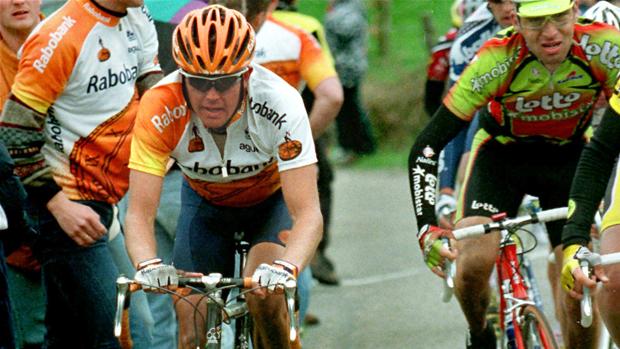
Tell us about your company, Royal Sport Management, please.
“In RSM I am accumulating my activities like agent for some riders, clinics, advice to organisations, etc.”
And your TDR electric bikes company.
“I ended the company and the activities in June 2014 after several economical, business and technical drawbacks.
“Now I am still discussing an eventual continuation with a new buyer.
“It was a great satisfaction to be able to win a Eurobike Gold Award in 2011, during the biggest and the world’s foremost bike fair in Germany. We achieved this with a small, motivated creative team together with Taiwanese partners, for whom I have still have a tremendous respect.
“On LinkedIn you can find more information and pictures.”
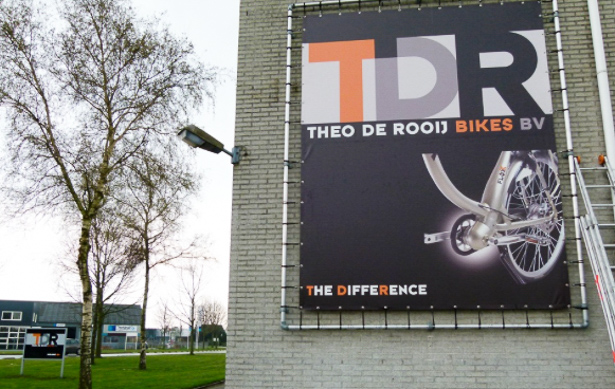
And the Theo de Rooij Classic sportive – you’re a busy man!
“It is a Tour organised by volunteers.
“We are riding to raise funds for local, recognisable charity and to promote the most beautiful cycling province in The Netherlands: Overijssel.”
How do you think the sport in the Netherlands compares now to your era as a rider?
“The Dutch mentality has always been good for a rider; down to earth, sober, serious. The Dutch easily adapt to other nationalities.
“We had good generations of riders, who (amongst others) became managers and passed down the heritage. In particular and general we are all standing on someone’s shoulders, I will never forget that and I am grateful for the experience I got from the people I came across in this great sport.
“Of course, sometimes we have to endure very difficult times and make even more difficult choices. Sometimes we cannot be taken accountable for ‘developments’ nobody is initially to blame for; let alone capable to manage, or solve!
“As from 1997 mainly, cycling made enormous sacrifices and paid nevertheless a terrible price for it.
“Even though the outside world is often judging differently.
“So, in the evolutionary perspective, the Dutch riders have a great future ahead!”
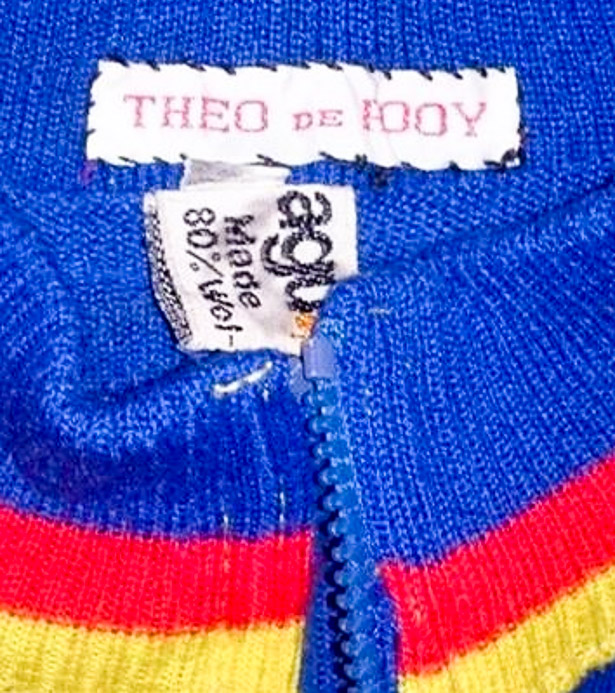
What was your best moment in the sport?
“Winning the Okolo Slovenska in 1978, in the Eastern Bloc, behind the Iron Curtain, it was a fantastic achievement and experience.
“The same goes for the Trofeo Laigueglia in 1982.
“Maybe not the big classic but for sure a highly contested win because it was the first race of the Italian season.”
Any regrets?
“No, I have always been utilising my full intellectual capacity and took decisions based on the knowledge of that particular moment.
“If, in a later phase, things are taking a different turn, you just have to improvise or change tactics.
“There is nothing more to it…”



